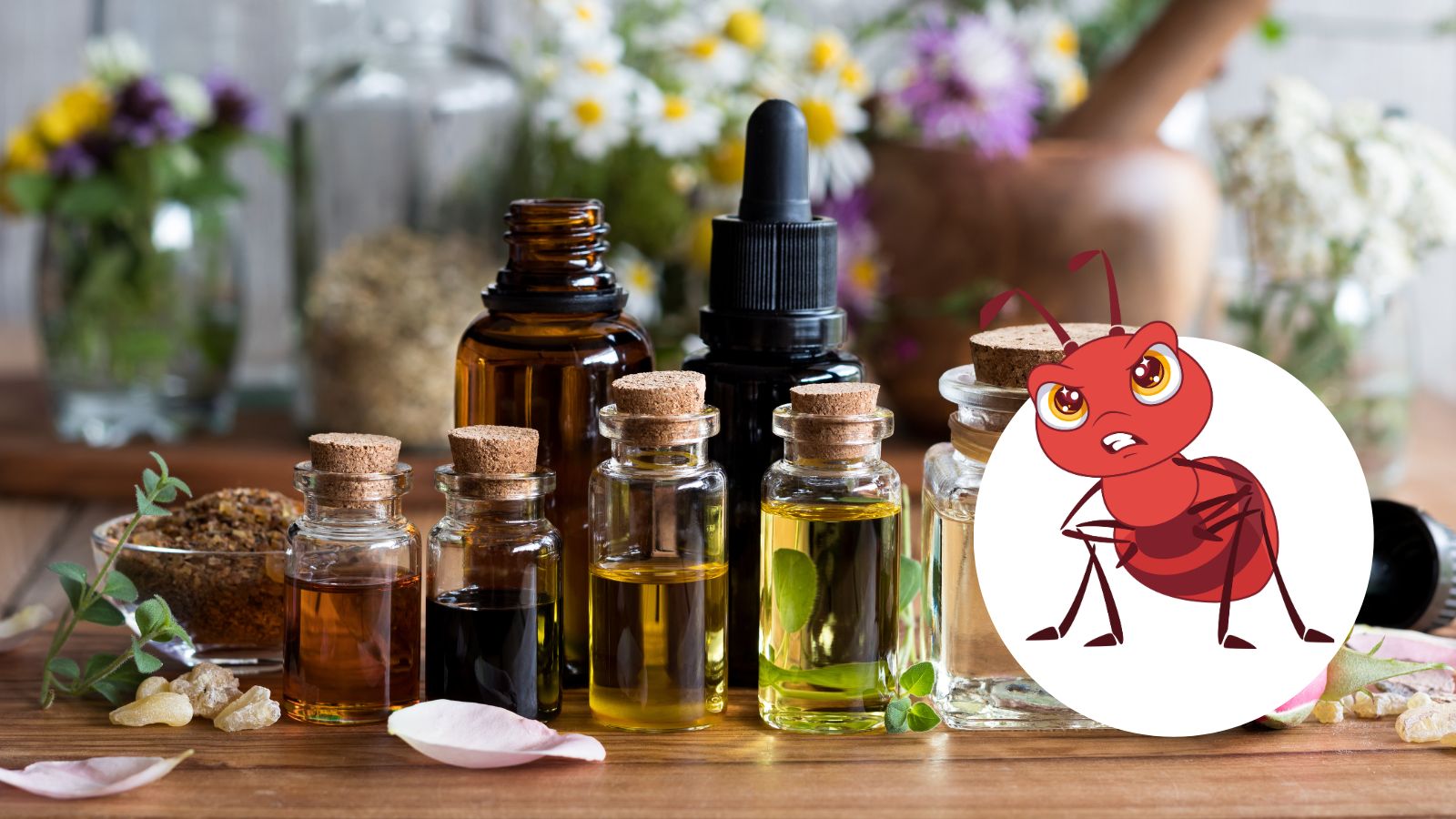Ants Hate These Essential Oils – How to Use Them Effectively

Picture this: You’re enjoying your morning coffee when a trail of ants catches your eye, marching determinedly across your kitchen counter.
Before considering harsh chemicals, you might find a fragrant and natural solution in your cupboard.
Ant infestations are a hassle that most households encounter, and they can be challenging to keep at bay with just everyday cleaning.
But what if your love for fresh and soothing scents could double as a line of defense against these persistent invaders?
Essential oils, known for their aromatic benefits, are emerging as a popular natural way to deter household pests.
Certain oils emit strong scents that ants find unbearable, turning your space into a no-go zone without synthetic chemicals.
Why Use Essential Oils for Ants?
Non-Toxic Solutions
You can address ant invasions without resorting to harsh chemicals.
Essential oils offer a natural ant-repellent alternative that’s safe for humans and pets.
This option allows you to maintain a non-toxic home environment, eliminating concerns about accidental ingestion by curious children or animals.
Environmental Considerations
Turning to essential oils as ant deterrents also signifies environmentally friendly pest control.
You’re choosing a method that doesn’t contribute to the pollution of ecosystems, safeguarding the delicate balance around your home and beyond.
Health and Wellness Benefits
Essential oils are not only about keeping ants at bay; they can also contribute to a healthier living space.
Many essential oils are known to have therapeutic properties, providing an added layer of health benefits during use.
This dual-purpose approach enhances your home’s ambiance while addressing pest issues.
How Essential Oils Repel Ants
The Power of Scent
Ants rely heavily on their sense of smell for navigation, using a pheromone trail to move to and fro.
Applying essential oils with a strong scent around your home can mask these pheromone trails.
This disorients the ants, as they can no longer depend on their chemical pathways to lead them to food sources.
Natural Solutions at Your Service
Several essential oils double as natural solutions for repelling ants due to their intense odors and potential toxicity.
These oils can even act on a broader scale by disrupting the ants’ reproductive cycles and can sometimes eliminate the ants upon contact.
These essential oils can be a friendly, non-toxic approach to keeping your space ant-free.
Apply them where ant trails are observed and in areas where these pests are unwanted.
Most Effective Oils and Scents

When dealing with ants, you’ll find that certain essential oils are not only disliked by these pests but can also be quite effective in repelling them.
These oils contain compounds that ants find offensive, making them an excellent natural deterrent.
Peppermint Oil
This oil has a sharp, refreshing scent laced with menthol. Peppermint oil is especially powerful due to its high menthol content, which is repellant to ants.
Tea Tree Oil
With a fresh, medicinal scent, tea tree oil contains compounds like terpinen-4-ol that can help keep ants away.
It’s also appreciated for its antiseptic properties, making it beneficial for use in the household.
Cinnamon
Cinnamon Oil: Ants steer clear from the warm, spicy aroma of cinnamon. This oil contains cinnamaldehyde, which is known for its ant-repelling properties.
Applying cinnamon oil near entry points has been noted to deter ants.
Cinnamon Leaf: Extracted from the leaves, this oil is similar to cinnamon oil but may be milder in scent and effect.
Citrus Oils
Lemon Oil: Lemon oil, with its fresh, zesty aroma, contains limonene, which ants dislike.
It’s among the best essential oils for creating an ant-repelling atmosphere in your space.
Orange Oil: Like lemon, orange oil possesses a fresh citrus scent. Its deterrence is attributed to the d-limonene it contains.
Eucalyptus Oil
Eucalyptus has a distinctive, sharp, and fresh scent.
Cineole, the main compound in eucalyptus oil, aids in repelling ants. Diluted eucalyptus oil spray is reported to be an effective ant deterrent.
Clove Oil
Rich and spicy, clove oil carries eugenol, a compound that is uncomfortable for ants and can even be toxic to them.
Thyme Oil
Thyme’s pungent and savory smell can be attributed to thymol, its main component.
It can act as an ant repellent, and it has been noted for its effectiveness when placed around entry points and trails.
Lavender Oil
Lavender oil offers a floral, sweet aroma. Beyond its pleasing smell to humans, it’s a scent that ants usually find offensive.
Linalool, a key compound in lavender oil, contributes to its ant-repellent capabilities.
Cedarwood Essential Oil
The woodsy, warm scent of cedarwood oil may be soothing for you but is daunting for ants.
It often contains cedrol and cedrene, which have been associated with insecticidal and repellent properties.
Citronella Oil
Commonly recognized for repelling mosquitoes, ants also dislike citronella’s lemony, grassy aroma.
Geraniol and citronellol are two main compounds often linked to their repellent efficacy.
Tips for Using Oils as Ant Repellents

Test Before Widespread Use
Before liberally applying any essential oil solution around your home, performing a patch test in a small, inconspicuous area is wise.
This ensures that the oil doesn’t damage surfaces or cause harm to your skin if there’s accidental contact.
Craft Your Mixture
A simple yet effective homemade ant spray can be made by combining:
- 1 part vinegar or distilled water
- 1 part essential oil (such as peppermint or tea tree)
Mix ingredients in a spray bottle and mist areas where ants are present. The strong scent of the oils disrupts the insects’ scent trails.
Regular Application
Because the aroma and efficacy of essential oils dissipate over time, it’s necessary to reapply your spray routinely.
Regular application increases the likelihood of keeping ants and other pests at bay.
Diversify Your Tactics
Using only essential oils might not fully solve the ant problem.
Incorporate them into a more comprehensive pest control strategy, including sealing entry points, maintaining cleanliness, and setting ant baits as needed.
Handle with Care
Essential oils can sometimes leave stains or be irritating if they come into contact with your skin.
Use gloves to apply the oil mixture, especially if using potent oils like cinnamon or d-limonene.
Also, be mindful of pets—many essential oils can harm them if ingested or if they come into contact with their skin.